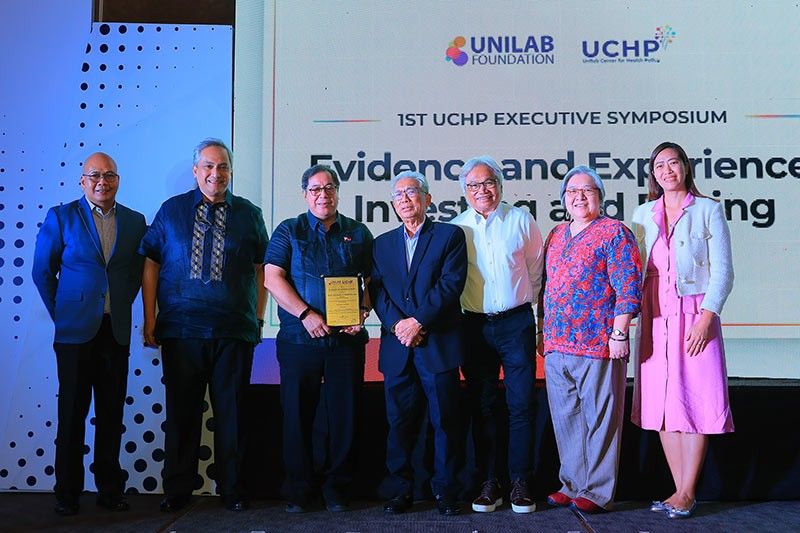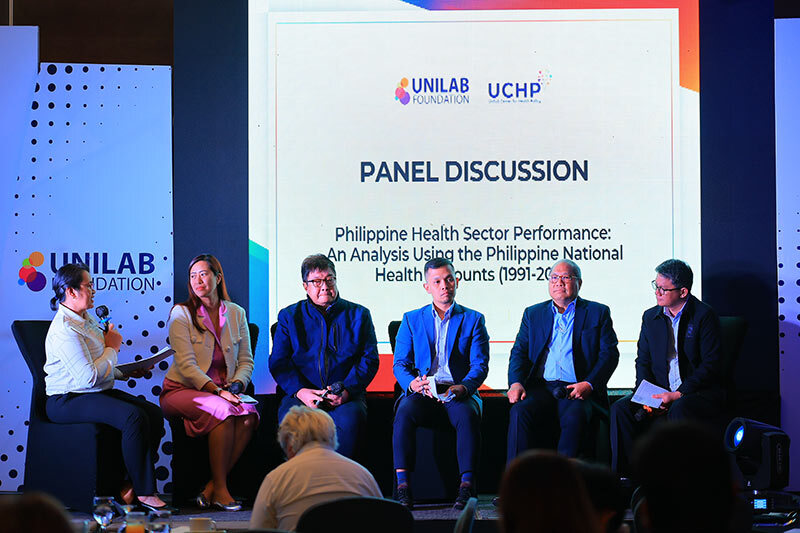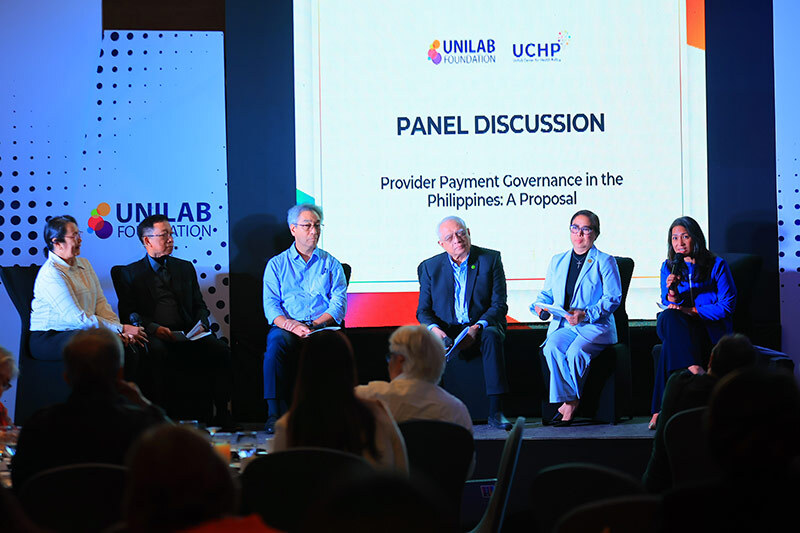Unilab Foundation studies to guide new gov’t efforts in reducing out-of-pocket health spending

MANILA, Philippines — Government regulators and policy-makers have committed to institute fresh initiatives that will cut the out-of-pocket health spending of Filipinos. They will use two research papers released recently by the Unilab Center for Health Policy (UCHP), a program of Unilab Foundation, as guides.
The UCHP unveiled during an executive symposium last August 2 the results of its two studies titled "Philippine Health Sector Performance: An Analysis Using the National Health Accounts of 1990-2022" and "Provider Payment Governance in the Philippines: A Proposal."
Health Secretary Teodoro Herbosa, in his keynote address at the symposium at the Sheraton Manila Bay, noted that these studies provide crucial insights into the health sector's strengths and challenges.
“The Department of Health is committed to integrating the insights from these studies into our policies and programs. By promoting evidence- and research-based decision-making, we aim to strengthen our health system and ensure every Filipino can access the care they need without financial strain,” Herbosa said.
In their solidarity messages, Budget Secretary Amenah Pangandaman, Senate Committee on Health Chairman Christopher Lawrence “Bong” Go, and House Health Committee Chair Ciriaco Gato Jr. also vowed to use the results of the UCHP studies as inputs in shaping policy directions that reduce the out-of-pocket medical expenses of Filipinos and promote better transparency and accountability in health spending.
The executive symposium was attended by representatives from the national government, local governments, Congress, healthcare providers, patients’ groups, and other key stakeholders in the health sector.
This is part of UCHPs commitment to provide the forum for an exchange of ideas for better implementation of the country’s Universal Health Care Act.
30-year Philippine health expenditure

In the first study conducted by Prof. Orville Solon, former Dean of the UP College of Economics, former Prof. Alejandro Herrin, and Dr. Michael Mo, the experts looked into the Philippine National Health Accounts (PNHA) from 1991 to 2022 to see the trends and impacts of government reforms to improve health spending.
The PNHA is being collected annually since 1991, although this is the first instance where a time-analysis for 30 years (1991-2022) is made.
“The National Health Accounts is a rich resource of information; and seeing how our actions and decisions impact the Filipino household is important in calibrating policies and programs”, said Dr. Enrique Ona, Chairman of the Advisory Council of the UCHP and a former Health Secretary.
The review showed that total health expenditure (THE) increased in nominal terms from only P40.3 billion pesos in 1991 to P1.1 trillion in 2022, or an average yearly growth of 10.95%, which is comparable with other economies in Southeast East Asia.
However, after correcting for inflation or what we call real terms, health spending grew by an average of 5.84% per year. But considering that the population grew from 62 million in 1991 to 112 million in 2022, health spending for every Filipino increased by an average of 3.9% every year.
Out-of-pocket payments have been consistently the biggest component of healthcare spending, accounting for 45% of the country’s total health expenditure in 2022. The national and local governments’ combined share is about 30%, while Philhealth accounts for only 14%.
“The analysis of our health sector’s performance over the past three decades gives us a clearer understanding of how our resources have been used and where we can improve. This aligns directly with our 8-Point Action Agenda by emphasizing the need for efficient resource allocation and policy-making based on solid evidence,” Secretary Herbosa said.
“We commend the Unilab Center for Health Policy for undertaking the first 30-year study on these accounts, which will greatly aid in developing strategies to improve healthcare delivery and health outcomes,” he added.
Reforms in PhilHealth payments system pushed

The second research, presented by UCHP Program Director John Basa, reviewed the benefits payment system and how it can be improved for better utilization of PhilHealth funds, including a shift to diagnostic related groups (DRGs).
Basa said the team of UCHP researchers led by Dr. Valerie Gilbert Ulep studied other countries like Thailand, Australia and Germany that are successful in implementing DRGs.
They learned that aside from shifting to DRGs from case rates, the Philippines should also have an independent arm's length agency that will oversee the release of payments to PhilHealth partner-institutions.
“The resulting global review of best practices showed that the establishment of an accurate and transparent methodology provides for a credible and collaborative engagement among concerned stakeholders. In the countries studied, independent technical institutions with the sole objective of overseeing provider payments were established,” the researchers noted.
Herbosa commented: “The proposal on provider payment governance addresses a critical component of healthcare efficiency. By exploring new ways to pay for health services, we can ensure that our resources are used wisely and that providers are motivated to deliver the best care possible.”
“This approach is in line with our current directions at the DOH, aiming for a system that is fair and accountable,” he concluded.
Editor’s Note: This press release is sponsored by Unilab Foundation. It is published by the Advertising Content Team that is independent from our Editorial Newsroom.




















